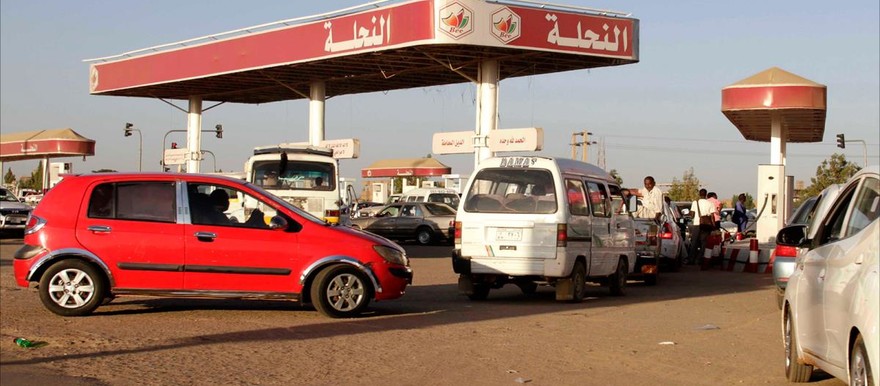Sudan fuel price rise sign of ‘chaotic economic policies’
On Thursday, the price of petrol increased by almost 20 per cent, while the price of diesel increased by seven per cent as announced by the Ministry of Energy and Mining. The decisions come after a recent cut in prices. According to economic analyst Hafiz Ismail, the increase can be seen as an unofficial tax increase.
 Queues at a Sudanese petrol station (RD file photo)
Queues at a Sudanese petrol station (RD file photo)
On Thursday, the price of petrol increased by almost 20 per cent, while the price of diesel increased by seven per cent as announced by the Ministry of Energy and Mining. The decisions come after a recent cut in prices. According to economic analyst Hafiz Ismail, the increase can be seen as an unofficial tax increase.
The ministry, which is also responsible for oil matters, announced an increase in the price of a litre of petrol from SDG 672 to SDG 720. The price of a litre of diesel went up from SDG 522 to SDG 620.
Chaotic policy
The ministry cut the price of petrol last month by 25 per cent and reduced the price of diesel by 1.8 per cent. At the time, economists reacted with scepsis around the measure.
The cuts followed a sharp 30 per cent increase in fuel prices in August, whilst transport tariffs were increased by 40 to 50 per cent.
Transport tariffs were not decreased and remained high after the fuel price cut, which sparked criticism. In October, lorry drivers protested a 600 per cent increase in transit fees.
Now, fuel prices are again near the levels before the cut, and much higher than they were before this summer.
Vehicle drivers told Radio Dabanga that there were severe queues and congestion at gas stations in Khartoumin since the early morning as drivers aim to supply fuel before the decision is implemented.
Unofficial tax increase
Economic analyst Hafiz Ismail attributed the new fuel price increases to "the undeclared increase in taxes". He pointed out that the prices of petrol in the world witnessed stability and a noticeable decline, but they are going up in Sudan.
Ismail called on the government to clarify the reasons for the increase in prices "in light of the drop in prices globally".
'These are the result of chaotic economic policies and the failure of the state to find a real solution for the economic crisis' – Hafiz Ismail
According to Ismail, the decision will "directly affect production inputs and the flow of goods and services, and increase the suffering of the people in the country".
He explained that the increases were not planned. "This will weaken the state revenues even more," he said. "These [price increases] are the result of chaotic economic policies and the failure of the state to find a real solution for the economic crisis."
The Sudanese government is not receiving any external support for its annual budget for the second year in a row, so it must rely on its own resources to complete the 2023 budget.
After a visit to Washington in mid-October, Minister of Finance Jibril Ibrahim repudiated any further tax increases. Yet, tax collection is below average and the same minister earlier called for expanding the ‘taxes umbrella’ [span of taxes] and said that he considered it “the most effective and successful way to increase tax revenues and combat tax evasion”. Sudan witnessed many protests against exorbitant tax increases.
However, Sudanese economists warn that increasing taxes will further increase the economic hardships of many Sudanese.
The United Nations Office for the Coordination of Humanitarian Aid (OCHA) in Sudan reported last week that the number of people in need of humanitarian assistance in Sudan will rise to 15.8 million next year, equivalent to about a third of the population.











 and then
and then